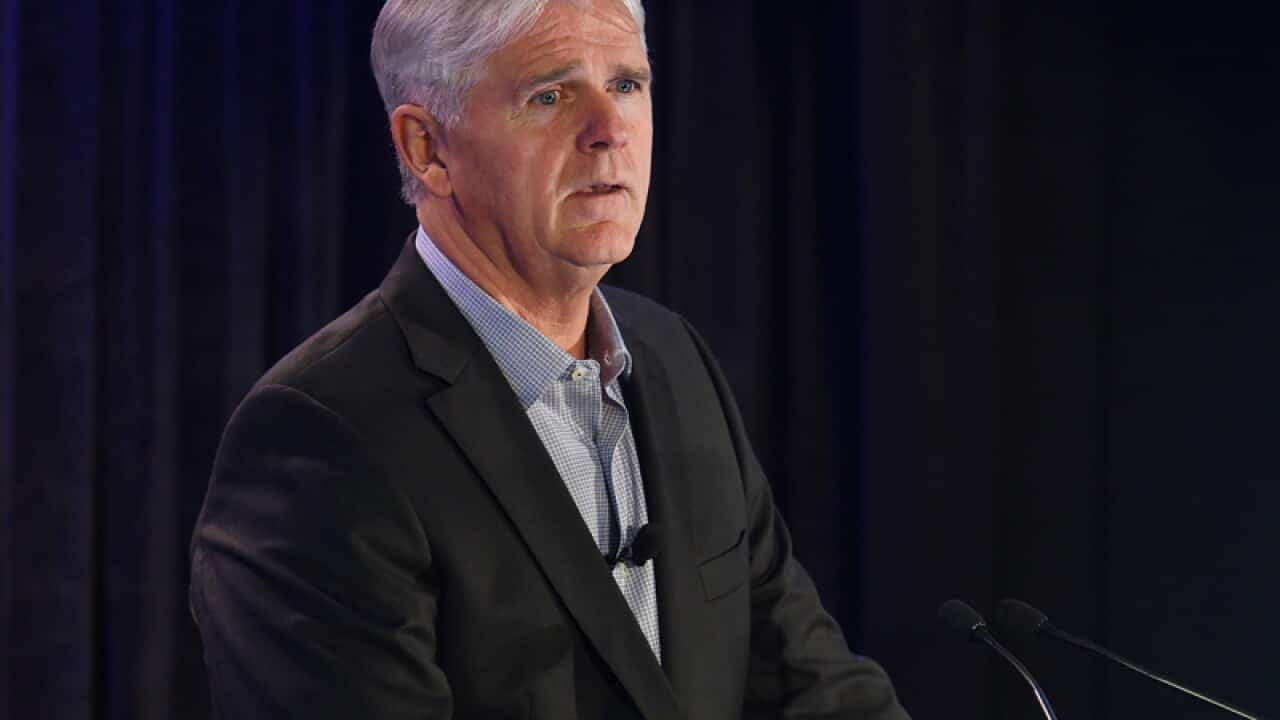NBN boss Bill Morrow says internet providers must do their part to ensure costs for consumers don't rise on the national broadband network, and not just rely on lower access charges.
As smaller industry operators express concern about high access charges for high-speed services on the new national network, Mr Morrow says NBN Co will continue to reduce access charges.
But he urged industry players to review their own cost structures, saying they set the price for consumers, not NBN.
"They have to look at their cost structure, they have to look at what retail price that they can actually command and have they even tried going out to see what people are willing to pay," he said.
"Clearly, everybody wants a cheaper price, but that doesn't necessarily mean we all get it."
Industry experts say if access charges are not cut, broadband providers will struggle to make a profit and smaller companies could fail.
At issue is NBN Co's connectivity virtual circuit (CVC) fee - a flat charge levied on internet providers per unit of bandwidth they buy on the national broadband network.
David Forman, of industry group Competitive Carriers' Coalition, said NBN Co needs to make "a more dramatic cut" to the charge from the current $15.75 per megabits per second a month to about $4 - the rate he said is charged now by TPG Telecom.
"The industry has said from the very beginning that this was going to be a problem. (The CVC fee) was always too high and the industry has always said it's going to be a bigger and bigger problem because data is growing very quickly," Mr Forman said.
"Since 2010 and the end of 2015, the total data downloads in Australia increased by 10 times."
Mr Morrow said NBN has cut the CVC from $20 to $15.75 and it will drop further.
"We see this thing going down near the $10 level with the amount of consumption or data usage that we forecast into the future," he said.
Foad Fadaghi, principal analyst at research firm Telsyte, said internet costs will rise in Australia and the provider market had been shrinking before NBN arrived.
"Consumers will have to pay more for services that exceed what they get today - this is not totally unreasonable to expect if they are getting faster or better quality services," he said.
Mr Fadaghi said smaller ISPs might fail but they could be replaced by businesses not currently in broadband provision, such as Facebook, Google, Woolworths or Coles.
"You need scale to operate profitably in a small market like Australia," he said.
"New competition could help keep prices in check."
Mr Forman says NBN is charging high prices because it is under pressure to make a return on investment to the Federal government, which has committed $29.5 billion on the project.
"They're desperate now to get as much money as they can to be able to satisfy this requirement that the government has that they show a rate of return, which keeps it off the budget," Mr Forman said.

